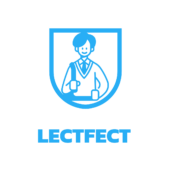Reaching Customers in 2025 Just Got Pricier Or Smarter?
If you’re asking how much to advertise on Facebook in 2025, you’re not alone thousands of marketers are typing the same query every month. And the answer? It depends. But don’t worry, we’ve broken it down for you with real data and practical insights.
Whether you’re running a boutique e-commerce brand, scaling your SaaS startup, or managing campaigns for clients, understanding Facebook ads cost in 2025 is a must. With CPMs and CPCs evolving rapidly and AI-driven optimization becoming the new standard, every dollar counts more than ever.
Let’s dive into current Facebook advertising costs and show you how to spend smart not more.
Average Facebook Ads Cost in 2025
Here’s a snapshot of the average costs you can expect:
| Metric | 2025 Average |
| CPC (Cost per Click) | $2.50 – $3.00 |
| CPM (Cost per 1,000 Impressions) | $10.00 – $15.00 |
| CPL (Cost per Lead) | $5.00 – $12.00 |
| CPA (Cost per Acquisition) | $10.00 – $35.00 |
Pro Tip: Your actual costs will vary depending on your audience targeting, ad placement, and ad quality.
Factors That Affect Facebook Ad Costs
1. Audience Targeting
Narrower audiences (like CEOs in California) usually cost more than broader ones (like all US adults aged 18–34). Precise targeting = higher bids.
2. Ad Relevance Score
High-quality ads that generate engagement tend to cost less per result, thanks to Facebook’s auction-based system. Your creative matters — a lot.
3. Bidding Strategy
Manual vs. automatic? Lowest cost vs. cost cap? Your bidding approach has a direct impact on final ad costs.
4. Placement
Facebook Feed, Stories, Reels, or Audience Network? Each has its own pricing. For example, Stories may yield lower CPCs but shorter attention spans.
How Much Do Facebook Ads Cost Per Month?
Most small businesses spend between $250 to $2,000 per month on Facebook Ads. However, high-growth companies or agencies often go well beyond that, hitting $10K+ monthly with optimized funnel strategies.
A good starting budget? $500/month — enough to A/B test, measure results, and scale based on performance.
How to Lower Your Facebook Ads Cost in 2025
- Use AI tools to generate high-performing creatives.
- Retarget wisely — warm audiences always convert cheaper.
- Exclude low-performing placements using performance breakdowns.
- Split test headlines, CTAs, and visuals weekly.
- Automate budget shifts toward your best-performing ad sets.
📐 Use a Facebook Ads Cost Calculator
Curious about what your spend might look like before running any campaigns? A Facebook ads cost calculator can simulate:
- Estimated reach by budget
- Predicted CPC/CPM
- Return on ad spend (ROAS)
Try the WASK Facebook Ads Cost Calculator — it’s fast, free, and accurate.
So… Is It Worth It?
Absolutely — if done right. Facebook is still one of the most scalable, flexible, and data-rich ad platforms available. But without optimization, you risk burning your budget.
And in 2025, there’s no room for guesswork.
Use real-time data, powerful AI tools, and tight creative testing loops. If you’re not optimizing your ad spend, your competitor is.

FAQs About Facebook Ads Cost in 2025
Q1: How much does it cost to advertise on Facebook per day?
Most businesses start with $5–$20/day, but the average ROI starts becoming measurable from $50/day and above.
Q2: Are Facebook ads still cheaper than Google Ads?
On average, yes — especially for visual products or B2C targeting. But it depends on your industry and campaign objective.
Q3: What is a good CPC on Facebook?
In 2025, anything under $2.00 is considered solid. However, in highly competitive niches, $3.00+ is normal.
Final Thoughts
Understanding how much Facebook ads cost in 2025 isn’t just about looking at numbers — it’s about strategy. It’s about where you advertise, who you target, and how good your message is.
Facebook still works — and with tools like WASK, it works even better.
👉 Need help optimizing your budget? Let WASK’s AI-powered ad optimization tools do the hard work.

